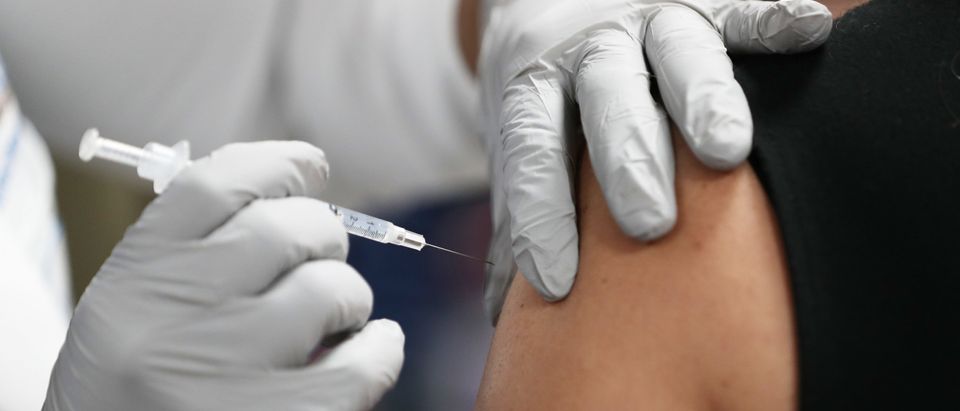The Centers for Disease Control and Prevention (CDC) provided guidance for distributing the coronavirus vaccine, and it appeared to take race into consideration.
The Advisory Committee for Immunization Practices (ACIP), a CDC committee that provides recommendations for the implementation of vaccine programs, divided the population into groups and then offered suggestions as to which groups would be prioritized as the vaccines were made available. (RELATED: CDC Panel Recommends Pfizer Vaccine For People Over 16)
The three main groups were adults over the age of 65, adults with high risk medical conditions and essential workers outside of the health care fields. Health care workers would be among the first to receive the vaccine because they were the most likely to be exposed to the virus on a regular basis.
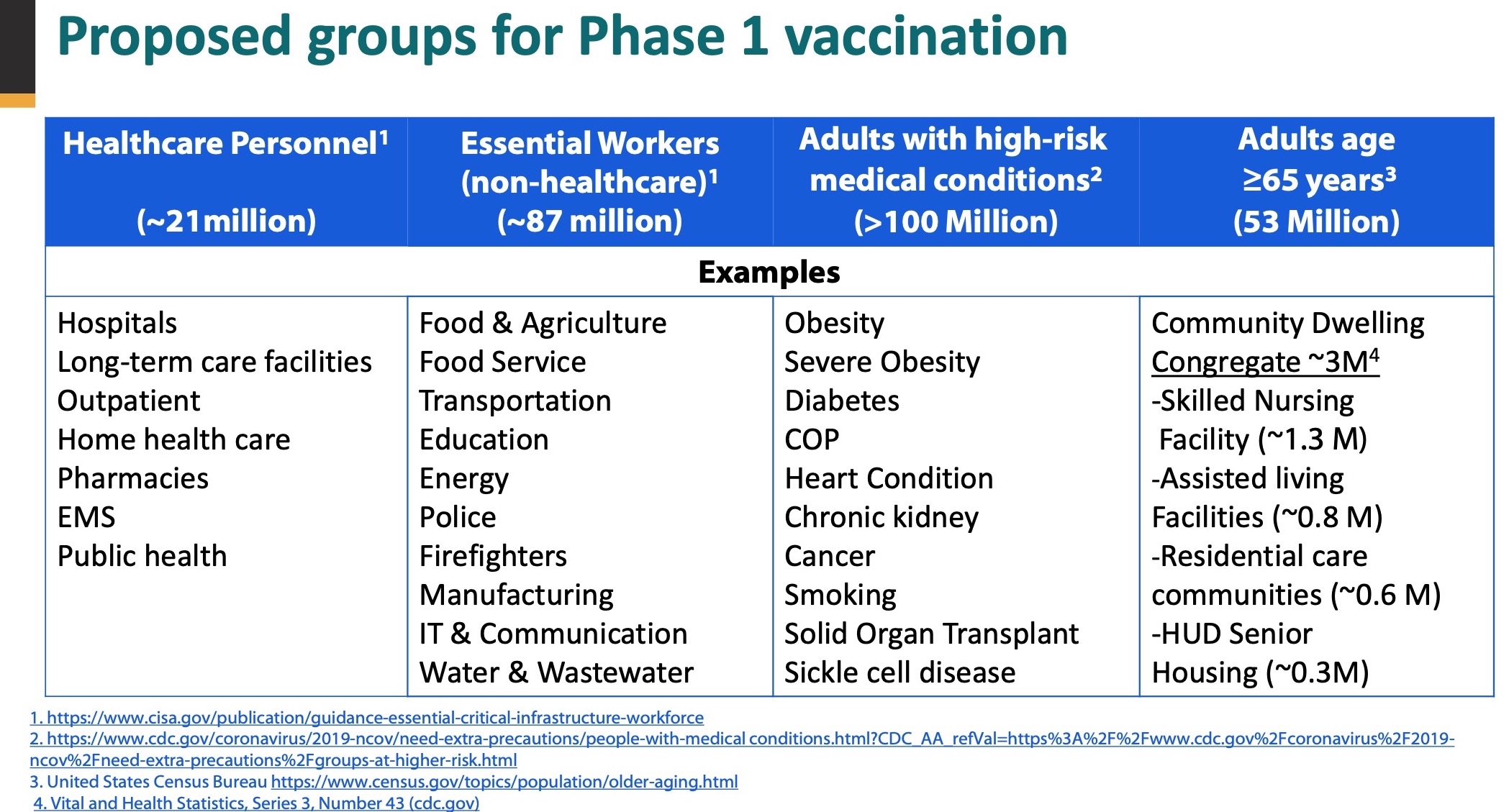
Screenshot/http://www.cdc.gov/vaccines/acip/meetings/downloads/slides-2020-11/COVID-04-Dooling.pdf
Those three groups were then evaluated based on three criteria that determined their need for access to the vaccine: science, implementation and ethics.
The committee agreed that the science supported all three groups getting the vaccine with the most vulnerable receiving access first. Among the most vulnerable were elderly Americans with compromised immune systems or other underlying health conditions and some healthcare workers.
Vote is 13 to 1 to support the recommendation:
Phase 1b: persons aged ≥75 years and frontline essential workers
Phase 1c: persons aged 65–74 years, persons aged 16–64 years with high-risk medical conditions, and other essential workers— Jen Kates (@jenkatesdc) December 20, 2020
The next step was evaluating the logistics and the difficulties with implementing the rollout and determining which groups could be vaccinated quickly and efficiently. Elderly residents of long term care facilities, for example, were both high risk populations and easy to vaccinate quickly because they were a localized population. Rural workers and those who hold multiple jobs — even if those jobs are deemed “essential” — would be more difficult to accommodate.
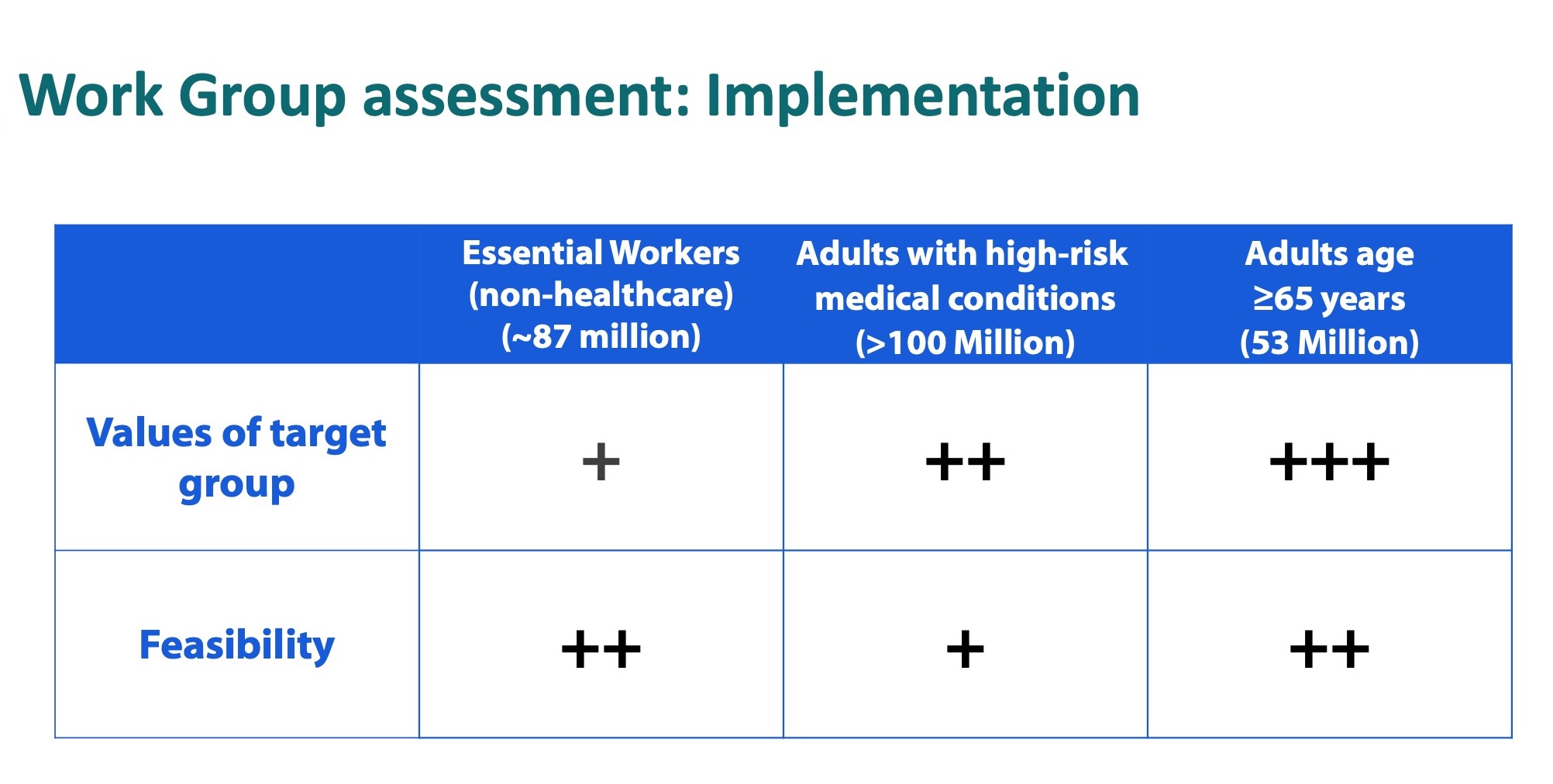
Screenshot/http://www.cdc.gov/vaccines/acip/meetings/downloads/slides-2020-11/COVID-04-Dooling.pdf
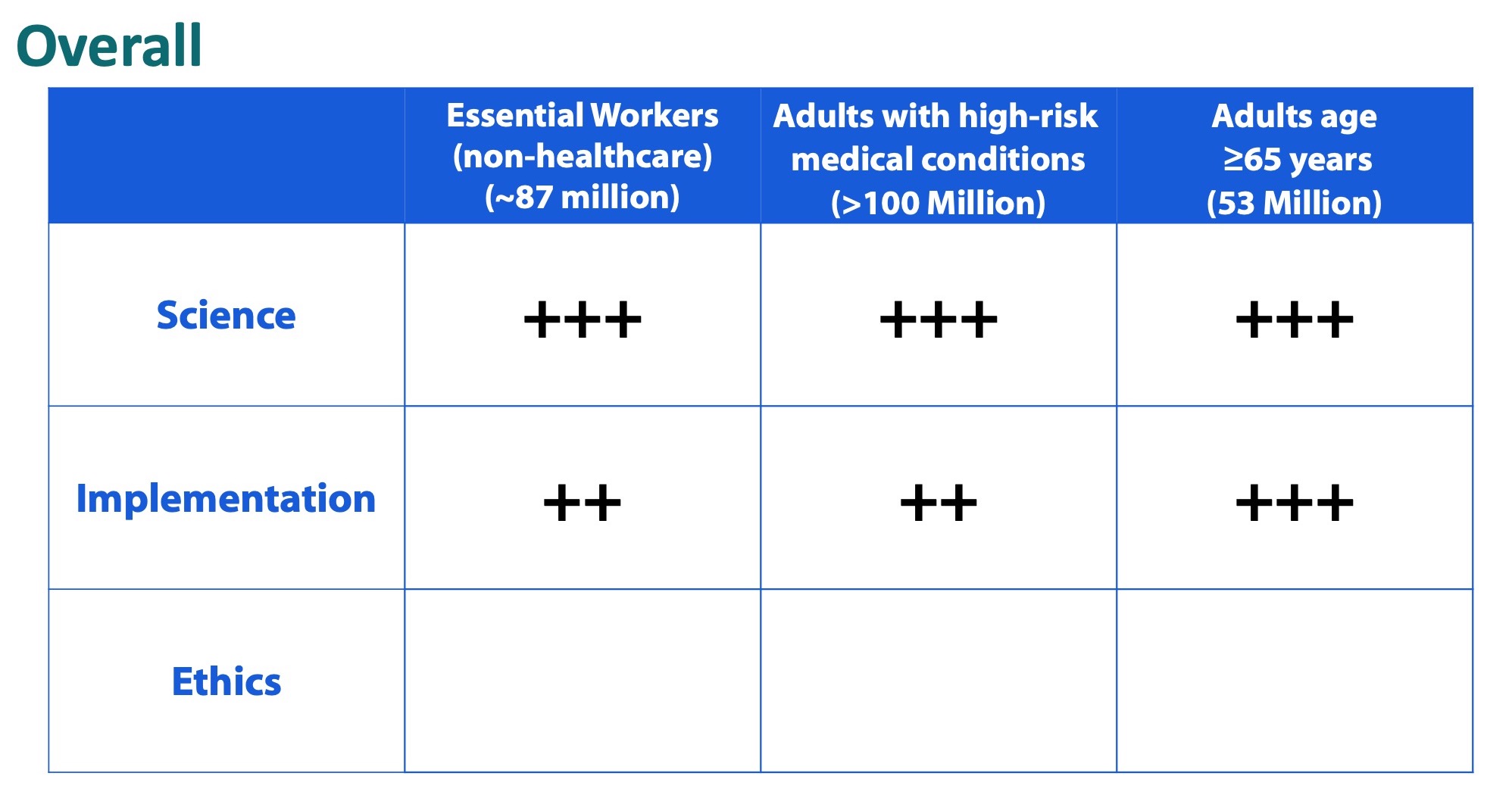
Screenshot/http://www.cdc.gov/vaccines/acip/meetings/downloads/slides-2020-11/COVID-04-Dooling.pdf
The final consideration explored the ethics of the vaccine distribution, noting which populations were more likely to face extreme complications or even death if they were not among the first to receive the vaccine.
The committee noted that elderly Americans — particularly those who lived in group homes of any kinds — were more susceptible to exposure, complications and death. Essential workers, however, were put into the higher risk category because minorities were “disproportionately represented in many essential industries” and accounted for a large percentage of the population that could not work from home. Giving them access to the vaccine, the committee said, “promotes justice.”
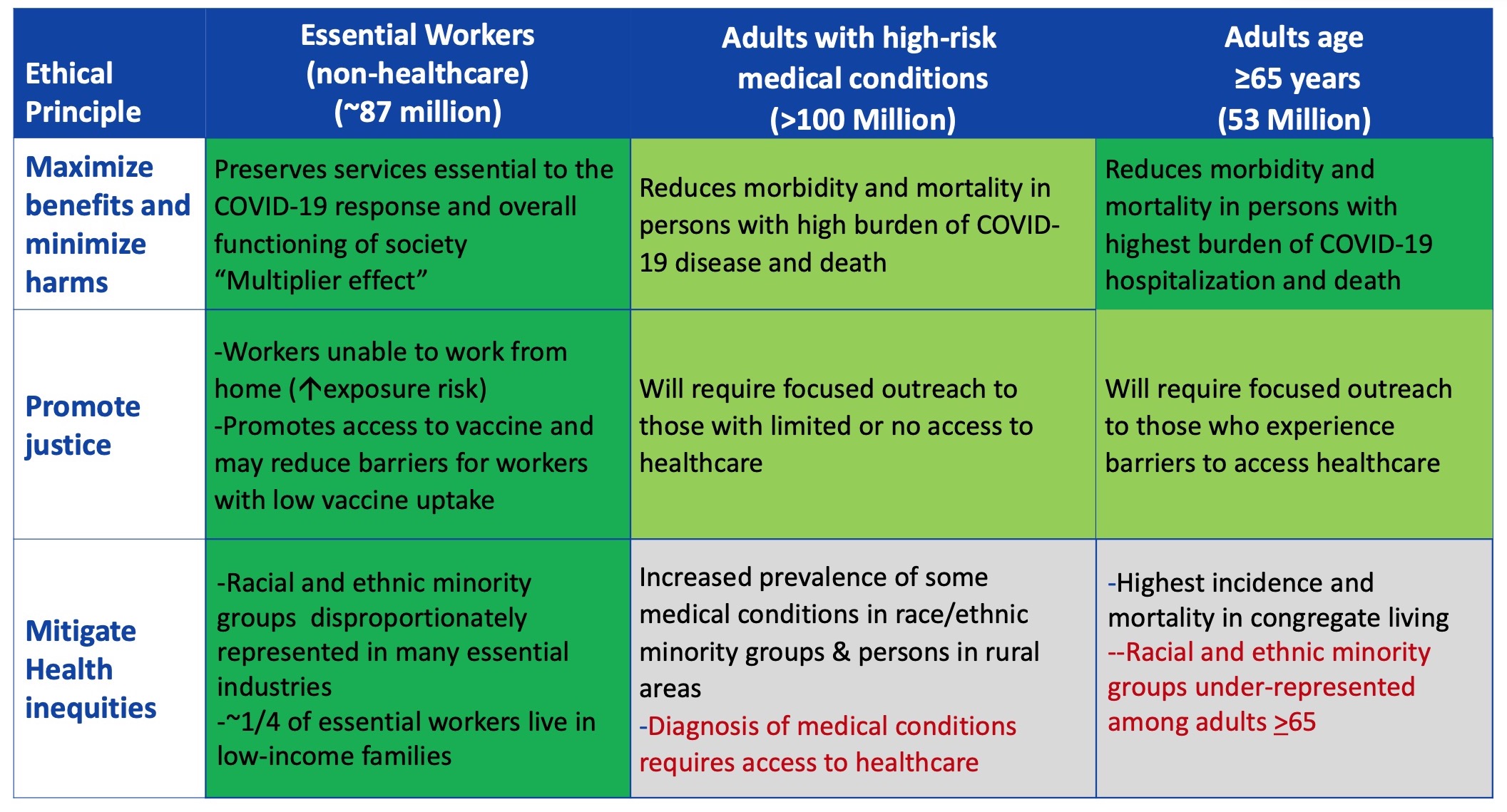
Screenshot/http://www.cdc.gov/vaccines/acip/meetings/downloads/slides-2020-11/COVID-04-Dooling.pdf
The committee concluded that, ethically speaking, essential workers should receive priority access because it would “promote justice” and “mitigate health inequities.”
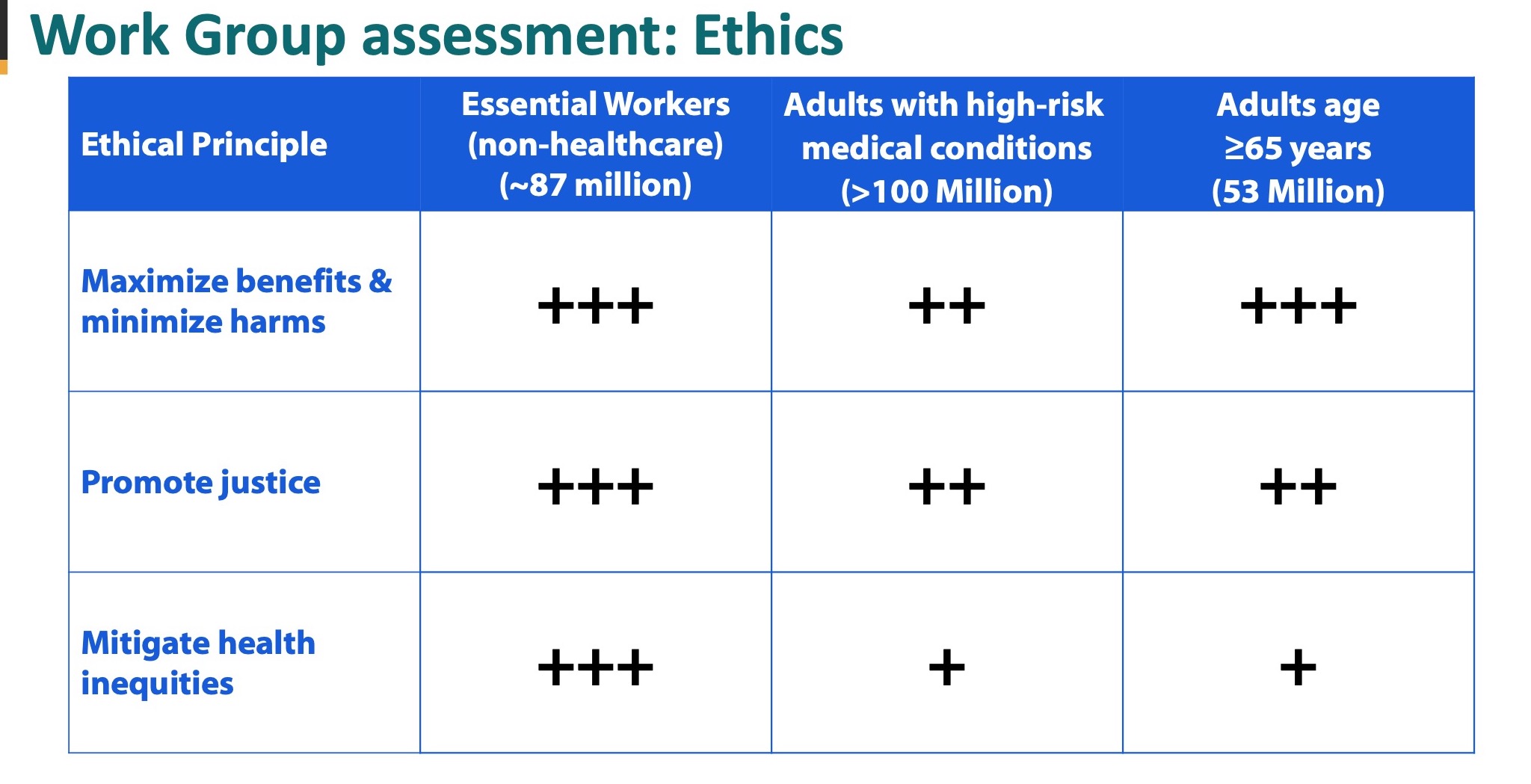
Screenshot/http://www.cdc.gov/vaccines/acip/meetings/downloads/slides-2020-11/COVID-04-Dooling.pdf
ACIP Chairman Jose R. Romero stated that the intention had not been to distribute the vaccine by race, but instead to deal with a limited supply and incredible demand.
He continues: “The statements being made through various outlets undermine the trust and….work of our committee”. He says that ACIP has never focused on targeting a specific racial or ethnic group in its deliberations.
— Jen Kates (@jenkatesdc) December 20, 2020
But as Business Insider’s Josh Barro noted, the recommendations did not appear to back up that claim.
“The essential workers group gets 2 extra points over 65+ group due to its greater racial and ethnic diversity, causing it to score higher on “ethics” and overall, and was then proposed to be placed ahead in line,” he said.
But this was in ACIP’s own November slides. The essential workers group gets 2 extra points over 65+ group due to its greater racial and ethnic diversity, causing it to score higher on “ethics” and overall, and was then proposed to be placed ahead in line. https://t.co/otXxwxNsAv https://t.co/O3EetdpVOz
— Josh Barro (@jbarro) December 20, 2020
Democratic Hawaii Rep. Tulsi Gabbard responded to the recommendations in a video posted on Twitter, not mentioning race but saying that she believed the elderly should be vaccinated first with no exceptions. (RELATED: ‘Heartless, Arrogant’: Tulsi Gabbard Rips Into ‘Unelected Bureaucrats’ For Vaccine Rollout That Skips Over Elderly)
“Heartless, arrogant, unelected CDC bureaucrats have decided that the lives of elderly Americans don’t count. They’re recommending 100 million “essential workers” (i.e. healthy people working at liquor stores or phone companies) can get the vaccine before our grandparents,” Gabbard tweeted.
Heartless, arrogant, unelected CDC bureaucrats have decided that the lives of elderly Americans don’t count. They’re recommending 100 million “essential workers” (i.e. healthy people working at liquor stores or phone companies) can get the vaccine before our grandparents. (1/2) pic.twitter.com/yEn0k0cKBs
— Tulsi Gabbard ???? (@TulsiGabbard) December 21, 2020
She went on to say that, while she did certainly plan to get the vaccine herself, she would be waiting until the more vulnerable populations had received their vaccines first.
“This is immoral and bad health policy. I had planned to get the vaccine but will now stand in solidarity with our seniors by not doing so until THEY can. I urge my colleagues who are under 65 and healthy to join me,” Gabbard added.
This is immoral and bad health policy.
I had planned to get the vaccine but will now stand in solidarity with our seniors by not doing so until THEY can. I urge my colleagues who are under 65 and healthy to join me. (2/2)
— Tulsi Gabbard ???? (@TulsiGabbard) December 21, 2020
Republican New Jersey Rep. Jeff Van Drew joined Gabbard, saying that he would also wait for his vaccine until those at greater risk had received theirs.
I believe that seniors, healthcare professionals and front-line workers should receive the vaccination first. I will be receiving my vaccination as soon as the most vulnerable have already received theirs.
— Congressman Jeff Van Drew (@CongressmanJVD) December 21, 2020


